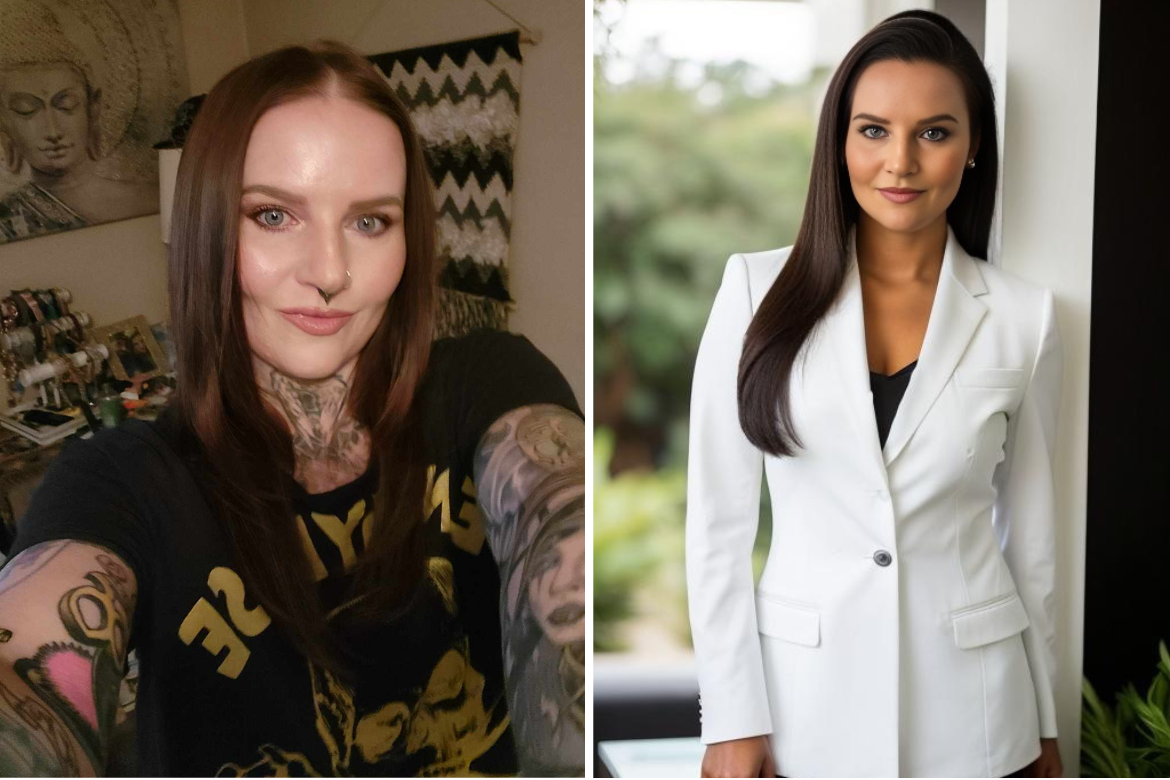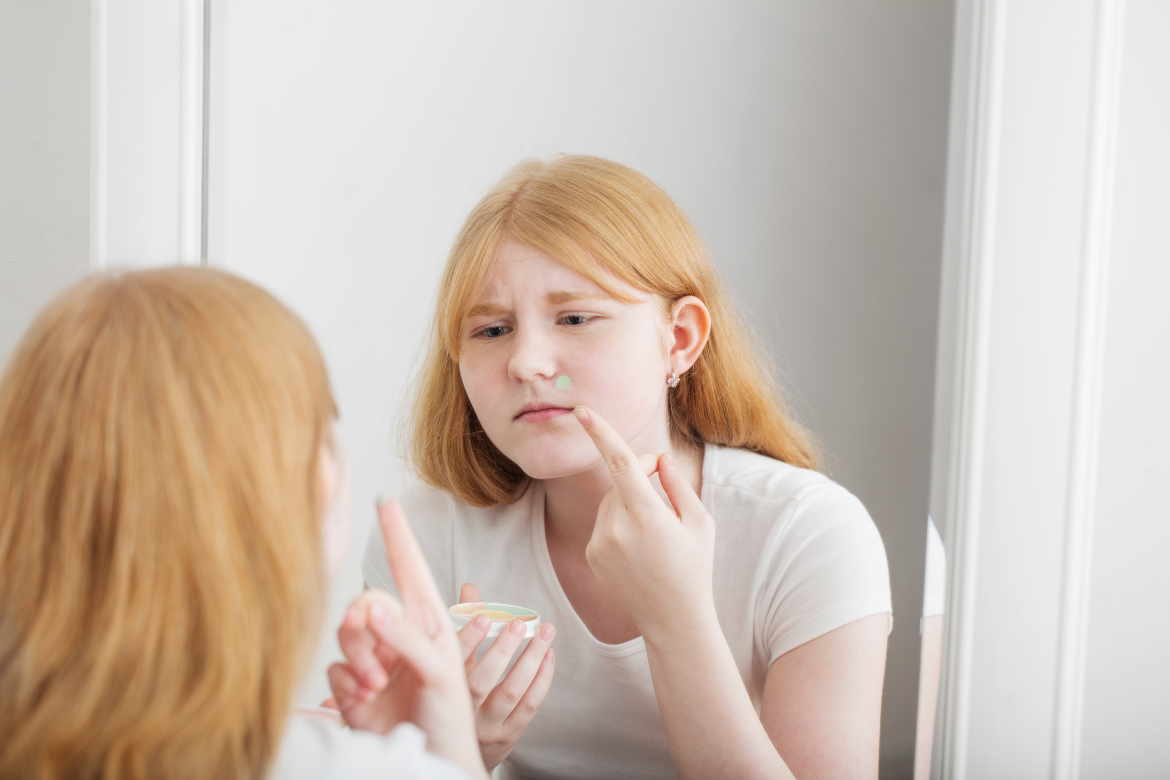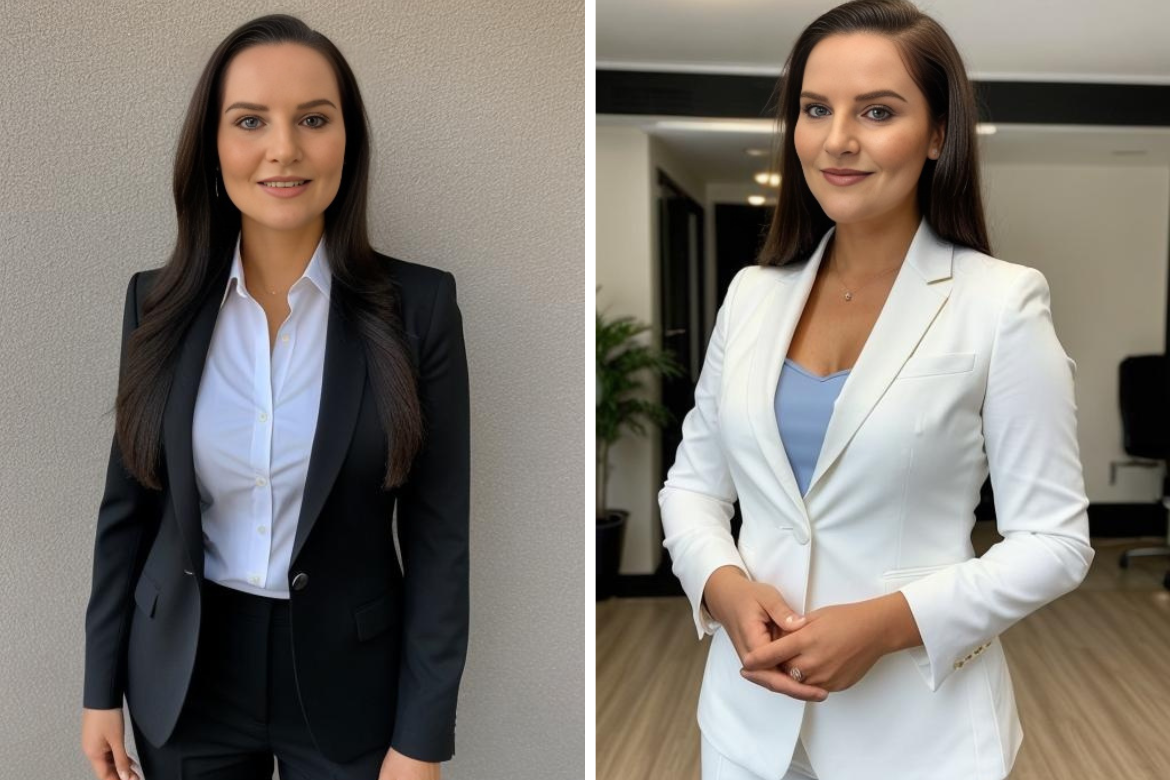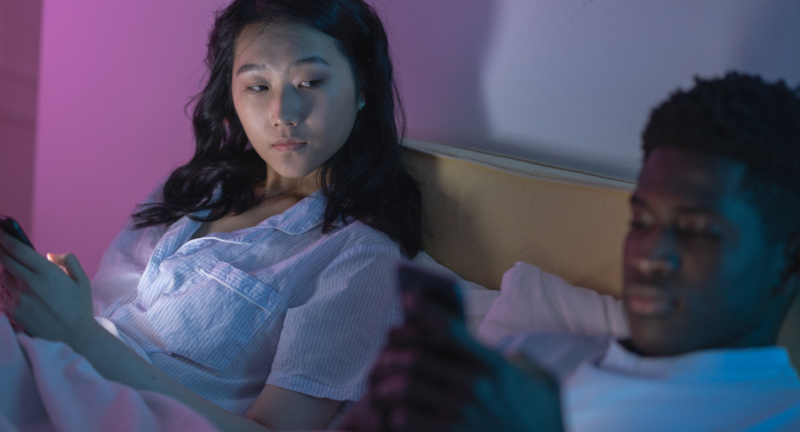

The Harm of Face Filters and AI Headshots
December 24, 2023 by Counseling and Wellness Center of Pittsburgh AI headshots, beauty standards, body image, comparison, face filters, harm of AI headshots, harm of face filters, jealousy, low self esteem, mental health, perfectionism, pittsburgh, popular culture, social media, social media addiction, social media usage, teen anxiety, unrealistic beauty standards 2 comments
In an era dominated by social media and visual content, the use of face filters and AI-generated headshots has become ubiquitous. While these tools offer fun and creative ways to enhance or alter one’s appearance, there’s a darker side to their pervasive use. This blog delves into the harm of face filters and AI headshots, exploring the profound impact they can have on self-esteem.
To illustrate the potential consequences, members of our team examined the real and AI-generated photos of one of our therapists and trauma specialists at the Counseling and Wellness Center of Pittsburgh. In our experiment, we explored how AI could alter their appearance. The result? The AI-generated photo stripped away their uniqueness and authenticity, highlighting the importance of advocating for ourselves and embracing the diversity of each individual.
The Illusion of Perfection
Face filters and AI headshots frequently present an idealized version of oneself. In addition to smoothed skin, enlarged eyes, and flawless features, these tools often promote unrealistic and thin body standards. Constant exposure to these altered images can lead individuals to perceive their unfiltered selves as inadequate, fostering feelings of inadequacy and diminished self-worth. The pressure to conform to these idealized standards can have a profound impact on individuals’ self-esteem and body image.
The Harm of Face Filters: Comparison Culture
Social media platforms are flooded with filtered images that set unrealistic beauty standards. The prevalence of these images can create a culture of comparison, where individuals measure their worth against the flawless appearances they see online. This constant comparison can erode self-esteem as people strive to attain an unattainable level of perfection which showcases the harm of face filters.

Disconnect from Reality
As face filters seamlessly blend with reality, users may find it challenging to distinguish between their filtered and unfiltered appearances. This detachment from reality can lead to dissatisfaction with one’s authentic self and contribute to a distorted self-image, blurring the lines between the digitally enhanced perception and the genuine reflection.
As users become accustomed to the filtered version, the unfiltered reality may start to feel inadequate in comparison. This heightened dissatisfaction can contribute to the development of a distorted self-image, where the perceived flaws or deviations from the filtered ideal become magnified.
Impact on Mental Health: The Harm of Face Filters
Research suggests a link between heavy social media use and poor mental health outcomes, including increased anxiety, depression, and body dissatisfaction. It’s crucial to note that the harm of face filters and AI headshots extends beyond facial features and alters body types, exacerbating negative outcomes. This impact is particularly significant among vulnerable demographics such as adolescents and individuals already susceptible to body image issues, including those with eating disorders.
The Harm of Face Filters: Unrealistic Beauty Standards
Face filters frequently perpetuate Eurocentric beauty ideals, reinforcing features that align with traditional standards of attractiveness. This narrow definition of beauty not only impacts facial features but extends to body types, promoting unrealistic and often thin body standards.
The perpetuation of these ideals can exclude diverse representations, further marginalizing individuals who don’t conform to these narrow beauty standards. This exclusion contributes to and exacerbates feelings of inadequacy, affecting individuals’ self-esteem and body image.

Inauthentic Connections
Creating and presenting an idealized version of oneself through filtered images can act as a barrier to authentic connections. When online interactions rely on meticulously curated images that showcase a perfected and often unrealistic persona, individuals may encounter difficulties in forming genuine relationships. The carefully constructed facade becomes a filter between the online persona and the true self, hindering the development of connections based on authenticity and sincerity. Individuals may struggle to form genuine relationships, leading to a sense of isolation and loneliness.
Potential for Addiction
The instant gratification provided by face filters can lead to addictive behavior. Constantly seeking validation through digitally altered images can create a dependency on external validation, making it challenging for individuals to appreciate their natural beauty without enhancements.
Embracing Our Natural Selves
While face filters and AI headshots offer entertaining ways to express creativity, their pervasive use raises serious concerns about the harm they inflict on self-esteem and mental well-being. As we navigate the digital landscape, it’s crucial to be mindful of the potential dangers, as exemplified by our experiment, and strive for authenticity.
Embracing our natural selves rather than succumbing to the harm of face filters perpetuated by technology becomes even more critical. By fostering a culture of genuine self-expression, and celebrating diverse representations, we can mitigate the negative effects and promote healthier attitudes toward beauty and self-esteem.
Reviewed by: Stephanie Wijkstrom, LPC, and Founder of The Counseling and Wellness Center of Pittsburgh
Related Posts
5 Tips for How to Deal with a Jealous Partner
September 13, 2021
Jealousy is an important and useful emotion. It can indicate that something is...
Passion and Play, Connecting With Energy and Creativity
October 9, 2015
Uncover passion and creativity Tick, tock, tick, tock, allowing the...



Not my real name -but add in issues like lifelong trichotillomania (think no eyelashes or eyebrows -none -at the end of any given day) and the extent of trying to cover this. Headshot requests for the workplace causing massive stress in a new job -director would not listen to my plea that I had a confidential issue -had to go the HR ADA accommodation route. Adding in AI to the equation makes this even worse…there are some people out there like me who have massive shame due to how we were treated (have been doing this since age 6 and I am 53) and having photos is a real issue. Great article.
Thank you for sharing your experience and insights. Your perspective sheds light on the challenges faced by individuals dealing with conditions like trichotillomania, and the added stress that technology, like AI, can bring to these situations. We appreciate your resilience and want to extend our support. If you’re local to Pittsburgh, we now have a new MD on staff who specializes in trichotillomania, offering specialized care tailored to your needs.